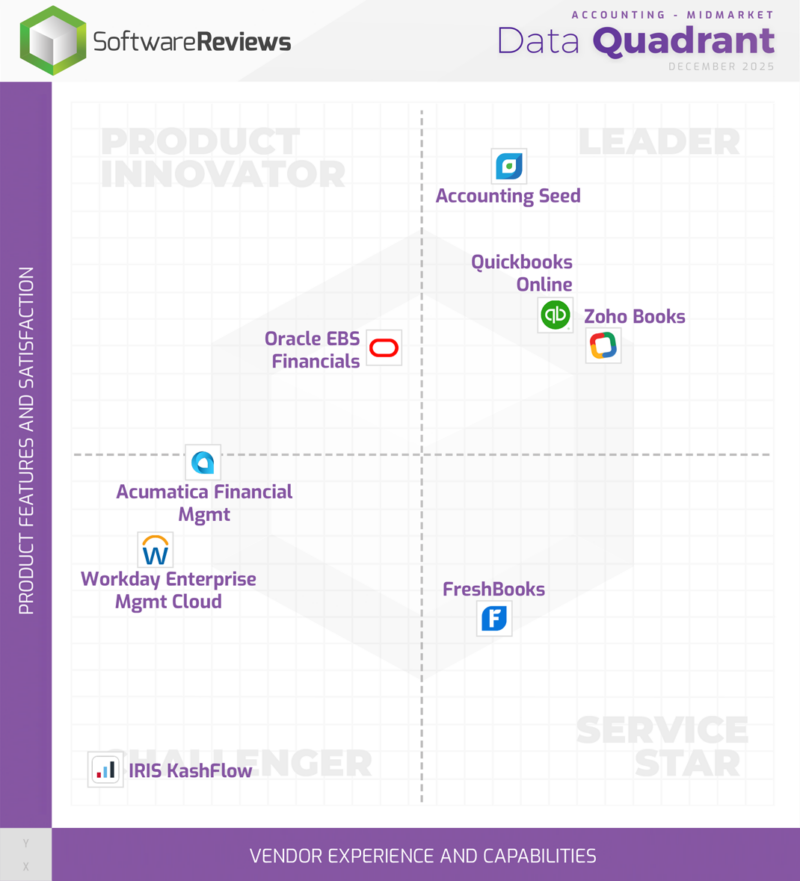
Target maximum revenue, growth, and profit with this in-depth startup accounting guide.

Like many startup owners, you may have more passion for sales than for bookkeeping, but managing the money is essential to success. If you fail to set up a robust and scalable accounting system from day one, your business will suffer from financial errors, poor planning, growing pains, and a high potential for failure.
On the flipside, if you get your accounting set up properly from the start, you’ll set your new company up for success. You’ll be able to track all the financial data that forms the lifeblood of a startup, including revenue, expenses, payroll, and general ledger. And as the old saying goes, what gets measured gets improved.
To help, we’ve put together this list of key accounting advice for startups, including the pitfalls to watch out for and best practices for clean, efficient accounting workflows. You’ll learn why the choice between cash and accrual accounting is important, along with best practices for budgeting, separating finances, and tracking and improving costs.
Let’s get you “in the green” with this quick, info-packed startup accounting guide.
Challenges For Early-Stage Startups
The process of accounting for startups is similar to the method for established businesses. One key difference is that a million-dollar business can hire an accounting team, while startups don’t have that luxury. In a new company, you may need to be your own startup accountant to keep expenses down.
The real challenge is that successful startup accounting isn’t just about entering numbers into a spreadsheet or an accounting software tool. A workable, efficient accounting system for startups depends on the decisions you make and the workflows you set up.
1. Cash Or Accrual?
One of the most important first steps to take with startup accounting is choosing between cash or accrual accounting. With the accrual designation, you’ll record transactions when you earn or owe the money. With the cash method, you’ll instead log transactions when the money changes hands.
If you complete work for a customer in March but get paid in April, under accrual accounting you’d record the payment in March, but with cash accounting you’d record it in April.
Most small businesses use cash accounting because it’s simpler. There’s no accounts receivable or accounts payable ledger—only money received or paid. The drawback is that, as with putting personal purchases on your credit card, it’s easy to lose track of how much your new company is spending.
Accrual Accounting for Startups
Using accrual accounting for startups lets you track how much you owe to creditors or suppliers in real time. It also surfaces the number of unpaid invoices in accounts receivable at any given moment. This makes it easier to track how your business is performing.
Can’t decide? You can launch your startup accounting system with the cash method and switch to accrual as you grow, but not vice versa.
2. Accounting Workflows
Learning how to keep your books correctly as your business grows is important, but good startup accounting requires more. You need to set up workflows—standard procedures—for tracking and recording transactions, even if you’re the accountant (or perhaps especially if you’re the accountant).
Small business owners are often incredibly busy. Bookkeeping for startups isn’t as exciting or urgent as the work that brings in revenue. It’s tempting to push data entry off until you have a spare minute, and you never have one.
The result? You can lose track of bills, fall behind on invoicing, or misplace important receipts. Good workflows help keep your startup accounting on track, and keep your business healthy.
3. Separating Business and Personal Finance
If you start out as a small proprietor or partnership, it’s perfectly legal to mingle personal and business money. Legally, you and your startup are one entity. It’s often simpler to pay for supplies out of your own pocket or cash a customer check to pay for this week’s food.
Even so, it’s better to take the time and keep your business finances separate. A separate bank account, separate credit card, and separate financial flows will simplify business expense tracking and taxes without worrying whether that minor repair bill was for work or the office.
4. Filing Things in Order
Keep paperwork (or digital records relating to taxable income or expenses) for at least three years. In some cases you’ll need to keep them longer. For instance, if you buy property such as real estate, cars, or computer equipment, you’ll keep the relevant records as long as you own the asset.
It’s important to set up a filing system that lets you find the right records when you need them. If you have to double-check that you entered a number correctly, or the IRS has questions about your expenses, you don’t want to have to sift through a pile of papers muttering “I know it’s in here somewhere.”
5. Making a Budget
Budgeting is a large part of startup accounting. If you don’t have a good estimate of your income and expenses, you can’t plan your company operations. If your budget projections are off, you can learn from your mistakes. For example, were you too optimistic about sales revenue? Did you underestimate the number of people you’d need to hire?
Once you see where your budget projections went wrong, you can use that knowledge to course-correct and drive toward higher revenue and profit.
Why Budget When Nothing Goes As Planned? Read on for tips on improving your budgeting processes via automation.
Accounting for Startups: Growing Pains
If your business grows larger from its small beginnings, you’re in the top half of all companies. However, bookkeeping for startups becomes more complicated once you’re large and established.
The main reason is that there’s more of everything: more payroll, more entries in accounts receivable, more departments to budget for, more expense reports, and more stakeholders who want to see the income statement and budget projections. You may also face different issues than you did in your early days, such as accounting for stock options.
Even if you had a handle on bookkeeping when you started, you’ll still face a steep learning curve as your company expands. You may need to overhaul your workflows to keep up with higher volume, or upgrade to a more sophisticated accounting software tool. Growing pains like these can make it hard to maintain good startup accounting workflows.
The answer? Start with a system that serves small business accounting well, but scales easily as your company grows. Below, we’ll share some tips and best practices for setting up an efficient accounting system that grows with you.
Tips for Good Accounting Workflows
If your business succeeds, eventually you’ll find you have many accounts to manage. At that point, hiring an accountant may make more sense than handling your own bookkeeping. In some cases, an accountant is mandatory. For example, only a CPA can draw up audited financial statements for a publicly traded company.
Until you reach that point, doing your own startup accounting may be the most cost-effective option. Even if you’re not a numbers person, you can set up and maintain a powerful accounting system. All it takes is good software, smooth workflows, and some smart accounting advice for startups.
To create efficient workflows, set a schedule for bookkeeping and stick to it. Waiting until you have free time to spare can mean you never get it done. But if you train yourself to enter receipts and payments at the end of every day, they won’t pile up on you. Commit to paying bills and sending invoices every week or at month’s end, and you won’t fall behind on either.
1. How to Monitor Costs
Your initial startup accounting workflows may not require more than a spreadsheet or a basic accounting software tool. However, as you grow, things will get more complicated. You may find yourself juggling multiple projects, departments, stores, and customers. Figuring out how much you’re spending on each of them and the return on your investment becomes vital.
You can get a handle on that complexity with a good accounting software solution. The right program can handle multiple tasks like tracking expenses and revenue for multiple projects and recording them in both your general ledger and the project ledger automatically. That vastly reduced the amount of data entry you’ll have to do.
2. Pay Vendors on Time
If you want a good relationship with your vendors, paying on time is a must. That means you’ll have to track when bills come due (or past due) and also watch your cash flow. Knowing it’s time to pay a supplier won’t do you any good if you don’t have sufficient funds in your account.
This is another area where you may experience growing pains as you become successful. Growth means buying more supplies, equipment, and inventory, which requires more time to track bills and pay them. Having a good workflow will go a long way toward not losing track. Digital solutions that handle payments automatically can take you further.
Read on for the Best Vendor Payment Processes for Businesses.
3. Automate Your Workflows
The best way to automate accounting for tech startups and other new firms is to think it through before you start. What functions do you need to automate? Invoicing? Bank statement reconciliation? Inventory monitoring? If you’ve digitized some of your startup accounting—your point-of-sale (POS) system records sales automatically, for instance—will your automated system integrate with them properly?
Also ask yourself what functions you might want to automate in the future. If you’re a one-person shop now but you plan to take on 100 employees in five years, a system that can automate payroll accounting might be worth the extra expense.
If you’re constantly on the go to meet clients, consider investing in a cloud-based system that can work from anywhere. Say you drive 65 miles for a conference with your client. As soon as you park you can record the mileage on your phone as a business expense.
Learn more: Top 16 Benefits of Automating Accounting Processes.
4. Track Money Coming In and Out
Good workflows and the right digital products can keep you from losing track of income, expenses, and cash flows. For example, suppose you use petty cash to make small purchases such as file folders or printer ink. You enter the purchase at the end of the day, then file or scan the receipts. At tax time this simple but important habit will make it easier to list all your deductible purchases.
Drawing up a cash flow statement and income statement on a monthly or quarterly basis is a key startup accounting step. These statements give you a handle on how your income, expenses, and cash compare to your budget and where the variances lie. You can spot your top expenses and rainmakers and plan for the future accordingly.
5. Plan for Common Bookkeeping Tasks
Bookkeeping for startups involves handling several routine tasks. You’ll need to reconcile your checking account, review your credit card purchases for any errors, track sales, make deposits to your business account, write checks to pay bills, and at some point, pay yourself. Establishing good accounting workflows from the start will keep you from overlooking routine tasks.
6. Set Up Financial Statements
The basic financial statements are the income statement, cash-flow statement, and the balance sheet. The income statement shows how much you earned and spent in a given period. The cash flow statement shows how much money changed hands. It’s possible to have lots of income coming in and still be close to broke if your customers aren’t paying fast enough.
The balance sheet is an equation with your total assets on one side of the equal sign and your debts and owners’ equity on the other. If, say, you have $100,000 in assets and $80,000 in liabilities, your company is in much riskier waters than if you have $80,000 in debts and $1 million in assets.
Books, websites, and finance courses offering accounting advice for startups can give you the basics for putting together financial statements. Dependable accounting software can take financial reporting off your plate completely by pulling in real-time data automatically.
7. Manage Payroll
Payroll is another business area where planning is as important as crunching numbers. You need to figure out your pay periods—weekly? Biweekly?—and compensation for holidays, vacation, and sick leave. You’ll have to look up how to calculate state and federal payroll taxes and know when the payments are due.
Like so many other aspects of startup accounting, payroll may be easy to manage by yourself when you have one or two employees. But as you grow, investing money in payroll software can take the work off your plate. You may eventually go with a company or service that will handle payroll for you.
8. Upgrading As You Grow
The software or workflows that serve your startup accounting may become inadequate as your company expands. The system may not be powerful enough to handle the increased volume smoothly. Perhaps it’s not set up for project accounting and you now have a lot of projects. Or you have several separate programs and you need an integrated solution.
Many companies handle these growing pains badly. They pile on more apps and spreadsheets, making the system more complicated and confusing. They become used to the flaws in their system and don’t make the effort to upgrade. In the long run, you’re better off making a bigger investment early. Or if you’re already down the path of multiple systems, biting the bullet and upgrading will be a worthwhile expenditure sooner than later.
Ask Accounting Seed for a Demo
Accounting Seed offers a comprehensive, Salesforce-based software system that can do any accounting-related task. Accounting Seed’s flexible, robust startup accounting system can track spending, monitor project costs, and let you enter one transaction and post it to multiple ledgers automatically.
You can also use Accounting Seed to generate insight-driving financial statements and dashboards. Ask for a demo of Accounting Seed and see what this full-featured platform can do for your startup accounting
Read on:
- Top 7 Issues Accountants Face Today
- Small Business Accounting Tips
- DCAA Compliant Accounting Software: What to Look For
- What are the International Accounting Standards (IAS)?
- Top 8 Reasons Why IT Implementations Fail
- What is Cash Disbursement in Accounting?
- Accrued Expenses: What are They and How to Report Them?
- Intro to Accounts Payable and Purchase Order Accounting
- Vendor Payment Processes: Everything to Know
- What is Integrated Accounting Software: Everything to Know
- What is Project Accounting? How to Do It Best
- Accounting Cybersecurity: What to Consider
See Accounting Seed in action
See how accounting on Salesforce can eliminate the need for costly integrations—and silos of mismatched information—by sharing the same database as your CRM.



